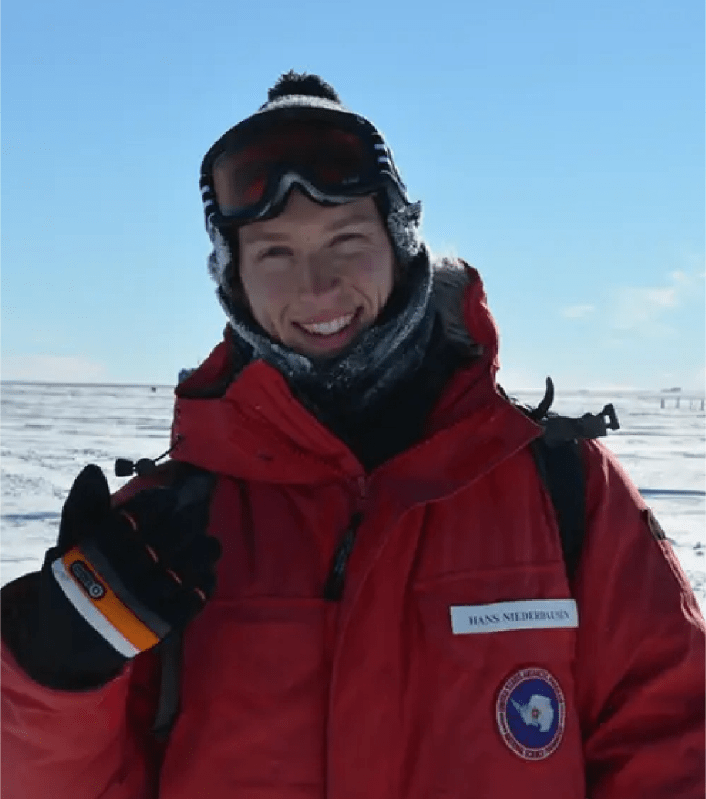
Hans Niederhausen, IceCube collaborator and postdoctoral research associate at Michigan State University (MSU), has been selected as the recipient of the 2023 Shakti P. Duggal Award presented by the International Union of Pure and Applied Physics (IUPAP).
Niederhausen was acknowledged for “his development and application of advanced analysis methods in neutrino astronomy.” The Duggal Award recognizes “outstanding work by a young scientist in the field of Cosmic Ray Physics, including Astroparticle Physics.”
The Duggal Award was established after cosmic-ray physicist Shakti Duggal’s untimely death in 1982. In honor of Shakti’s long association with cosmic ray physics and his many contributions to the field during his career, the award is given biennially at every ICRC. The first Shakti P. Duggal Award was presented at the 19th International Cosmic Ray Conference at La Jolla in 1985.
Previous Duggal Award winners have all achieved recognition and prominence in their careers, with the award achieving the status of the premier award in the field of cosmic ray physics.
Award winners receive a monetary award and, since 1991, an invitation to visit the Bartol Research Institute of the University of Delaware, where Shakti Duggal worked, to present a colloquium and discuss their work.
Niederhausen received his PhD at Stony Brook University where he studied the flux of high-energy neutrinos originating from beyond our solar system, particularly astrophysical electrons and tau neutrinos recorded by IceCube.
He then went on to work at the Technische Universität München (TUM) from 2018-2021. There, Niederhausen led a breakthrough IceCube study that identified the active galaxy NGC 1068 as a neutrino source. Niederhausen and Theo Glauch, another postdoctoral associate at TUM, were instrumental in developing new statistical and machine-learning methods to search for neutrino sources. Currently, he is applying machine-learning methods to analyses of IceCube data at MSU.
“To me, this award is further recognition that astronomy with neutrinos is becoming a reality,” said Niederhausen. “It is also a reminder that going after the big questions requires a lot of attention to the nitty-gritty technical details that aren’t easily talked about. This work can only be done when motivated people collaborate together over prolonged periods of time.”
He added: “I’d like to sincerely thank all of my collaborators for their many important contributions to our work.”